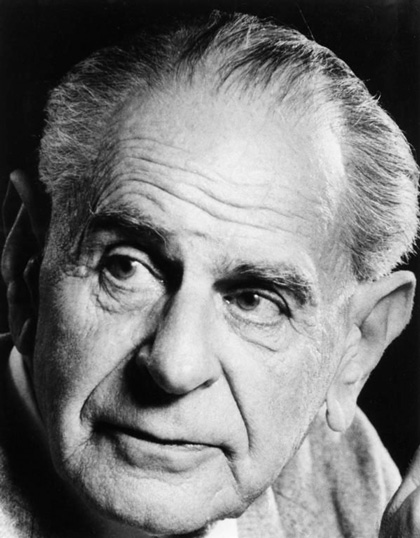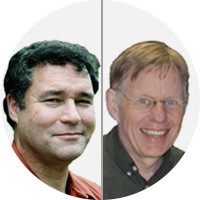The views expressed in our content reflect individual perspectives and do not represent the authoritative views of the Baha'i Faith.
…man through the possession of this ideal endowment of scientific investigation is the most noble product of creation. – Abdu’l-Baha, Baha’i World Faith, p. 243.
In Part I of our series about spirituality and science, we posed the question: What methods can help determine reality and truth; that can guide one’s search for meaning and purpose in their life; and establish integrity and a code of ethics that can provide satisfaction and abiding contentment?
For the sake of our discussion of this important question, let’s assume that the metaphysical, religious and spiritual approaches in this quest are “off-limits”. Since we live in a skeptical world inundated with contradictory claims, and mystical and dogmatic explanations, let’s limit our method for going about this process to empiricism and rationalism, or as known by the modern combination of these approaches: science. Also, in order to eliminate pseudoscience, let’s focus especially on scientific method.
We will attempt, as scientists, to speak to science-minded people about divinity and revelation in a credible way that can inform and assist a personal quest for purpose, meaning and integrity — which could be ennobling and conducive to abiding contentment.
So, if we are going to do this like a scientist, what is a scientist and how does a scientist think? Strictly speaking, a scientist (as opposed to a philosopher) is a person engaging in a systematic activity to acquire knowledge; and to this end, utilizes the scientific method. In a more restricted sense, a scientist is an individual who follows core principles for scientific inquiry. From watching the “Big Bang Theory” we know that some of these principles are:
The world is understandable
Scientific ideas are subject to change
Scientific knowledge is durable and progressive
Science cannot provide complete answers to all questions
Science demands evidence
Science is a blend of logic and imagination
Science explains and predicts
Scientists try to identify and avoid bias
Science is not authoritarian
Science can be a complex social activity
Science is organized into content disciplines and is conducted in various institutions
There are generally accepted ethical principles in the conduct of science
We would offer three additional points: (a) scientists are professional doubters; (b) scientists require material proof; and (c) scientists can be brave in accepting new ideas.
All of these points are derived from the basics of the scientific method, as described by Karl Popper. In brief, a theory is “scientific” if it leads to predictions that are falsifiable (i.e., can be disproved). As a trivial example, the theory of gravity says that a pen will fall to the floor; if the pen doesn’t drop then the theory of gravity has been shown to be false and must be dropped as well. If the pen falls as predicted, then the theory is tentatively accepted, at least until it is falsified, or a better theory comes along. In the world of science, a theory is “better” if it makes more general or more startling predictions, or if it contains as few elements as possible (Occam’s razor: simplicity is good).
Doubt is central to the scientific method. In the scientist’s world, doubt is also central to acceptance and advancement. A scientist can become famous by finding a logical hole in an existing theory, or in demonstrating that a theory, even if logical, doesn’t hold in the real world. In the scientist’s world, a theory is no stronger than its weakest link: if doubt can be cast on any element of a theory, then the theory as a whole must be discarded.
If a scientist is interested in spiritual topics, one should expect some very pointed questions directed at what the scientist perceives to be the weakest link in the chain of reasoning: there is nothing personal in this, just business as usual.
We can now begin to describe the difficulty in speaking with scientists about God. By nature a scientist, a professional doubter, requires proof in order to believe. Proof means material proof, yet religion is fundamentally about spirit, not matter. Moreover, according to the rule of the weakest link, if a scientist encounters anything about religion that seems wrong; for example, an element of superstitious practice or belief that flies in the face of reason, he or she is likely to reject religion in its entirety.
One of the very positive aspects of the scientist’s world view: namely, that she will embrace new ideas, so long as they have been demonstrated as better than what has gone before. In matters of religion, the objection of many people, whether substantive, psychological, or both is “why isn’t what was good enough for my father good enough for me?” In matters of science, at least after the scientist gets over her initial shock, one never hears “it was good enough for the Romans to believe that the sun revolves around the earth, so it’s good enough for me.” This fundamental open-mindedness of scientists provides the opportunity for meaningful spiritual dialogue.

















Comments
Sign in or create an account
Continue with Googleor